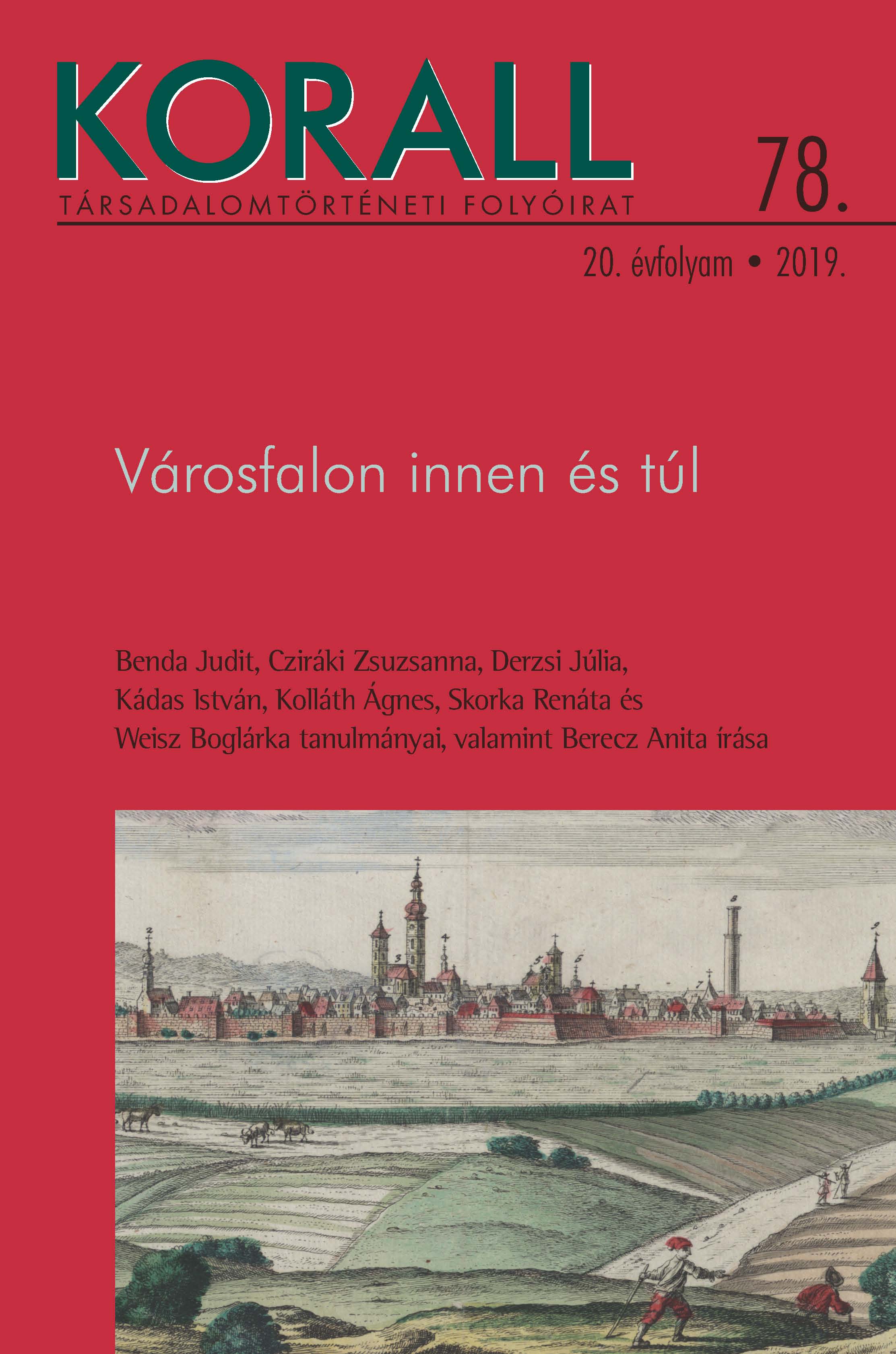Város, falu, megye. A városi birtokok hadpénze a középkor végén
Town, Village, County: The pecunia exercitualis from the Estates of the Towns at the End of the Middle Ages
Author(s): István KádasSubject(s): Economic history, Social history, 15th Century, 16th Century
Published by: KORALL Társadalomtörténeti Egyesület
Keywords: hungary;history;medieval;towns;
Summary/Abstract: The study examines a special tax relating to the relationship of towns and their home counties during the first decades of the sixteenth century. This tax, the so-called pecunia exercitualis, was the half of the royal tax paid by landlords’ peasants to the county. It is notable that barons also collected royal tax from their villeins, but they had the right to keep this half of the revenues for themselves. The county had to use these tax revenues to finance all military expenses. During this period, royal towns had valuable estates, for example, the town of Sopron was the third wealthiest landlord in its home county.The paper studies the pecunia exercitualis through a controversy that arose between towns and counties in 1525. The county argument was that since the towns had been paying the pecunia exercitualis to the king from the time of King Vladislaus II, they were liable to pay it this way in the future as well. Admittedly, the tax was introduced in 1498 but at the same time the king exempted the royaltowns and their villages from the county taxes. The diets between 1498 and 1500 often dealt with this question, although the problem was not the towns’ hereditary estates but their pledges and the private means of the burghers. The royal towns and counties of Upper Hungary played a significant role in this dispute, because burghers and town communities there held a large number of pledges. Since the towns had to pay tax after their pledges, the outcome favored the nobility. Sopron at the time did not possess many pledges, and its hereditary estates were exempt from the county tax. In addition, the town recruited its own mercenaries. This suggests that although it is likely that Sopron did not pay tax to the county during the reign of King Vladislaus II, it did so in some cases under the reign of King Louis II.
Journal: Korall - Társadalomtörténeti folyóirat
- Issue Year: 2019
- Issue No: 78
- Page Range: 59-75
- Page Count: 17
- Language: Hungarian

